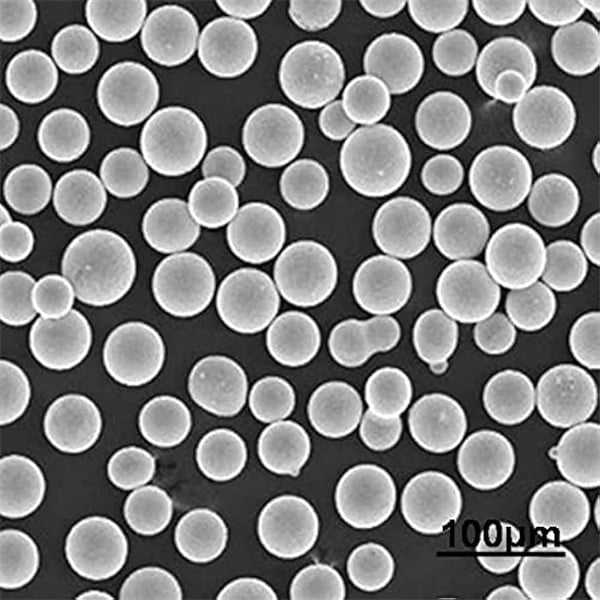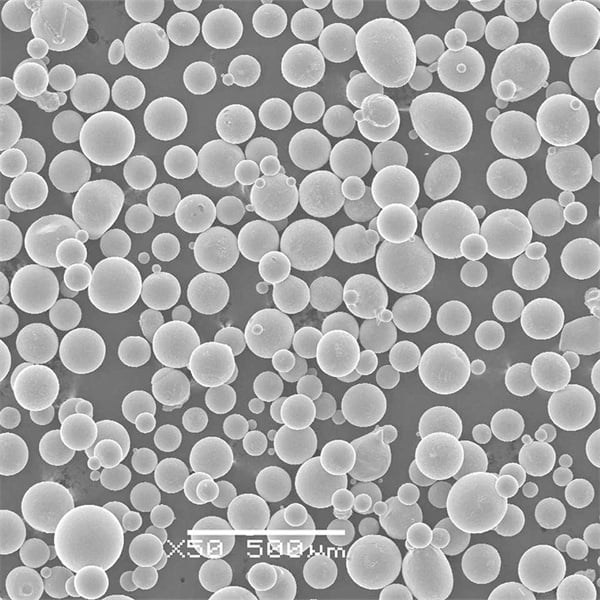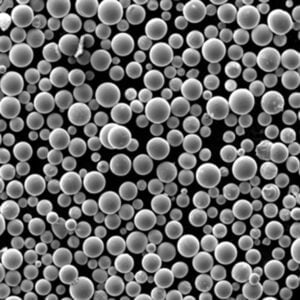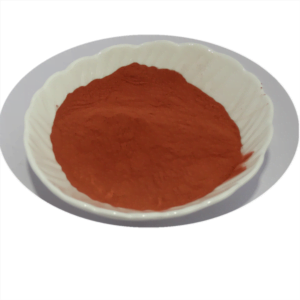The Complete Guide to Commercial Powders
Table of Contents
Overview of Commercial Powders
In the world of materials science and manufacturing, commercial powders play a crucial role. These powders, typically composed of metals, alloys, ceramics, and polymers, are essential in various industrial applications, from additive manufacturing to pharmaceuticals. But what exactly are commercial powders, and why are they so significant? Let’s dive into this fascinating topic, exploring the different types, their properties, and their myriad applications.
Commercial powders are finely divided solid substances produced through various processes like atomization, milling, or chemical precipitation. These powders are used in numerous industries due to their unique properties such as high surface area, flowability, and reactivity. Whether it’s creating complex aerospace components or developing advanced medical devices, the versatility of commercial powders makes them indispensable.

Types of Commercial Powders
There is a wide range of commercial powders available, each with distinct characteristics tailored to specific applications. Here, we will focus on metal powders, which are among the most commonly used in industrial processes.
Metal powders are metallic particles used in powder metallurgy and other manufacturing processes. They can be categorized based on their composition, particle size, shape, and production method. Below is a detailed table summarizing various types of metal powders, their composition, and properties.
Types of Metal Powders, Composition, and Properties
| Type | Composition | Properties |
|---|---|---|
| Aluminum Powder | Pure aluminum or aluminum alloys | Lightweight, corrosion-resistant, high thermal conductivity |
| Iron Powder | Pure iron or iron-carbon alloys | High strength, magnetic properties, good wear resistance |
| Copper Powder | Pure copper or copper alloys | Excellent electrical and thermal conductivity, ductility |
| Titanium Powder | Pure titanium or titanium alloys | High strength-to-weight ratio, biocompatibility, corrosion resistance |
| Nickel Powder | Pure nickel or nickel-based alloys | High-temperature resistance, oxidation resistance, good mechanical properties |
| Cobalt Powder | Pure cobalt or cobalt alloys | High wear resistance, good magnetic properties, high melting point |
| Magnesium Powder | Pure magnesium or magnesium alloys | Very lightweight, high strength-to-weight ratio, good machinability |
| Stainless Steel Powder | Iron-chromium alloys | Corrosion-resistant, high strength, good thermal and electrical conductivity |
| Tungsten Powder | Pure tungsten or tungsten alloys | High density, high melting point, excellent wear resistance |
| Zinc Powder | Pure zinc or zinc alloys | Good corrosion resistance, low melting point, used for galvanization |
Applications of Commercial Powders
Commercial powders are used across various industries, each application leveraging the unique properties of these materials. The table below outlines some key applications and the types of powders commonly used in each.
Applications and Uses of Commercial Powders
| Application | Common Powders Used | Description |
|---|---|---|
| Additive Manufacturing | Titanium, Stainless Steel, Aluminum, Nickel | Used in 3D printing to create complex geometries with high precision and minimal waste |
| Pharmaceuticals | Various organic and inorganic compounds | Used in drug formulation and delivery systems |
| Coatings | Zinc, Aluminum, Stainless Steel, Copper | Applied as protective or decorative coatings for corrosion resistance and aesthetic purposes |
| Catalysts | Platinum, Palladium, Nickel | Used in chemical reactions to speed up processes without being consumed |
| Electronics | Copper, Silver, Gold, Nickel | Used in conductive inks, solder pastes, and other electronic components |
| Aerospace | Titanium, Aluminum, Nickel | Utilized for lightweight and strong components in aircraft and spacecraft |
| Automotive | Iron, Aluminum, Copper | Applied in parts manufacturing, coatings, and catalytic converters |
| Medical Devices | Titanium, Stainless Steel, Cobalt-Chrome | Used for biocompatible implants, surgical instruments, and diagnostic equipment |
| Energy Storage | Lithium, Nickel, Cobalt, Manganese | Used in battery electrodes and other energy storage systems |
| Construction | Iron, Aluminum, Zinc | Utilized in construction materials, reinforcement, and protective coatings |
Specifications, Sizes, Grades, and Standards
The specifications of commercial powders vary significantly depending on their intended use. These specifications include particle size, purity, shape, and other physical and chemical properties. Below is a table summarizing the key specifications for different types of metal powders.
Specifications for Metal Powders
| Powder Type | Particle Size (µm) | Purity (%) | Shape | Standards |
|---|---|---|---|---|
| Aluminum Powder | 1-100 | 99.5-99.9 | Spherical, irregular | ASTM B928, AMS 4068 |
| Iron Powder | 10-500 | 97-99.9 | Irregular, spongy | ASTM A131, ISO 9001 |
| Copper Powder | 1-100 | 99.9 | Spherical, dendritic | ASTM B170, ISO 10380 |
| Titanium Powder | 5-100 | 99.5-99.9 | Spherical, angular | ASTM B348, AMS 4928 |
| Nickel Powder | 10-150 | 99.8 | Spherical, flake | ASTM B733, AMS 2403 |
| Cobalt Powder | 1-50 | 99.9 | Spherical, irregular | ASTM F75, ISO 5832 |
| Magnesium Powder | 10-200 | 99.8 | Spherical, angular | ASTM B92, ISO 209 |
| Stainless Steel Powder | 10-500 | 98-99.9 | Spherical, irregular | ASTM A240, ISO 9001 |
| Tungsten Powder | 1-100 | 99.9 | Spherical, irregular | ASTM B777, AMS 7725 |
| Zinc Powder | 1-50 | 99.9 | Spherical, irregular | ASTM B6, ISO 752 |
Suppliers and Pricing Details
Choosing the right supplier is crucial for obtaining high-quality commercial powders. Prices can vary widely based on factors such as purity, particle size, and production method. Here’s a table showcasing some prominent suppliers and approximate pricing details.
Suppliers and Pricing for Metal Powders
| Supplier | Powder Type | Price Range ($/kg) | Contact Information |
|---|---|---|---|
| Höganäs AB | Iron, Stainless Steel | 10-50 | www.hoganas.com |
| Sandvik | Titanium, Nickel | 50-200 | www.home.sandvik |
| Praxair Surface Technologies | Aluminum, Copper, Cobalt | 20-150 | www.praxair.com |
| Carpenter Technology | Stainless Steel, Titanium | 30-250 | www.cartech.com |
| GKN Powder Metallurgy | Iron, Stainless Steel | 10-60 | www.gknpm.com |
| Advanced Powders and Coatings | Nickel, Cobalt | 100-500 | www.advancedpowders.com |
| AMETEK Specialty Metal Products | Magnesium, Zinc | 20-100 | www.ametekmetals.com |
| LPW Technology | Various Metal Powders | 50-300 | www.lpwtechnology.com |
| Arcam AB (GE Additive) | Titanium, Nickel | 150-600 | www.arcam.com |
| Tekna Plasma Systems | Aluminum, Titanium | 100-400 | www.tekna.com |
Advantages and Limitations of Commercial Powders
Like any material, commercial powders have their own set of advantages and limitations. Understanding these can help in selecting the right type of powder for a given application.
Advantages and Limitations of Metal Powders
| Metal Powder | Advantages | Limitations |
|---|---|---|
| Aluminum Powder | Lightweight, corrosion-resistant, excellent thermal conductivity | Relatively expensive, reactive in powdered form |
| Iron Powder | High strength, magnetic properties, cost-effective | Susceptible to oxidation, moderate corrosion resistance |
| Copper Powder | Excellent electrical and thermal conductivity, ductile | Expensive, prone to oxidation |
| Titanium Powder | High strength-to-weight ratio, biocompatibility, corrosion-resistant | Very expensive, difficult to process |
| Nickel Powder | High-temperature resistance, oxidation resistance | Expensive, limited availability |
| Cobalt Powder | High wear resistance, good magnetic properties | Very expensive, potential health hazards during handling |
| Magnesium Powder | Very lightweight, high strength-to-weight ratio | Highly reactive, prone to corrosion |
| Stainless Steel Powder | Corrosion-resistant, high strength | Expensive, difficult to sinter |
| Tungsten Powder | High density, high melting point, excellent wear resistance | Very expensive, difficult to process |
| Zinc Powder | Good corrosion resistance, low melting point | Limited high-temperature performance, potential environmental impact |
Comparing Metal Powders
When it comes to choosing the right metal powder, it often boils down to the specific requirements of your project. Here’s a more detailed comparison of some of the most popular metal powders, highlighting their advantages, disadvantages, and ideal applications.
Detailed Comparison of Metal Powders
| Parameter | Aluminum vs. Titanium | Iron vs. Stainless Steel | Copper vs. Nickel |
|---|---|---|---|
| Weight | Aluminum is lighter | Iron is heavier | Copper is heavier |
| Strength | Titanium is stronger | Stainless Steel is stronger | Nickel is stronger |
| Corrosion Resistance | Both are good, but Titanium is superior | Stainless Steel is superior | Both are good, but Nickel is superior |
| Thermal Conductivity | Aluminum is better | Iron is moderate, Stainless Steel is lower | Copper is better |
| Electrical Conductivity | Aluminum is good, but Copper is better | Iron is moderate, Stainless Steel is lower | Copper is superior, Nickel is good |
| Cost | Aluminum is cheaper | Iron is cheaper | Copper is expensive |
| Availability | Aluminum is widely available | Both are widely available | Copper is widely available |
| Ease of Processing | Aluminum is easier to process | Iron is easier, Stainless Steel is harder | Copper is easier, Nickel is harder |
Insights and Examples of Commercial Powder Applications
Let’s delve deeper into some real-world examples of how commercial powders are transforming industries.
Additive Manufacturing (3D Printing)
In additive manufacturing, metal powders like titanium and stainless steel are used to build complex structures layer by layer. For instance, aerospace companies use titanium powder to produce lightweight yet strong parts for aircraft, significantly reducing fuel consumption and increasing efficiency.
Pharmaceuticals
In the pharmaceutical industry, various powders are used to create medications with precise dosages and controlled release mechanisms. For example, magnesium stearate is a commonly used powder in tablet manufacturing due to its lubricating properties.
Coatings
Zinc and aluminum powders are often used in protective coatings to prevent corrosion in metal structures. This is particularly important in marine environments where exposure to saltwater can rapidly degrade materials.

FAQ
Q: What are the most common production methods for metal powders?
A: The most common production methods for metal powders include atomization, mechanical alloying, chemical precipitation, and electrolysis. Each method has its own advantages and is chosen based on the desired properties of the powder.
Q: How do I choose the right metal powder for my application?
A: Choosing the right metal powder depends on several factors, including the required properties (e.g., strength, conductivity, corrosion resistance), cost considerations, and the specific requirements of your application. Consulting with suppliers and reviewing technical specifications can help guide your decision.
Q: Are there any safety concerns when handling metal powders?
A: Yes, there are several safety concerns when handling metal powders, including the risk of inhalation, flammability, and chemical reactivity. Proper safety measures, such as using personal protective equipment (PPE), working in well-ventilated areas, and following safety guidelines, are essential to mitigate these risks.
Q: Can metal powders be recycled?
A: Yes, metal powders can often be recycled. Recycling involves collecting unused or waste powder, cleaning it, and reprocessing it for future use. This not only reduces waste but also lowers production costs and minimizes environmental impact.
Q: What is the shelf life of metal powders?
A: The shelf life of metal powders depends on factors such as the type of metal, storage conditions, and exposure to environmental factors like humidity and air. Generally, when stored properly in airtight containers and in a dry, cool environment, metal powders can maintain their quality for several years.
Conclusion
Commercial powders, especially metal powders, are essential materials in modern manufacturing and industrial applications. Their unique properties and versatility make them indispensable in fields ranging from aerospace to medicine. By understanding the different types of powders, their properties, and applications, manufacturers can make informed decisions to optimize their processes and products. Whether you’re looking to innovate in additive manufacturing or enhance the performance of electronic components, commercial powders offer endless possibilities.
In this comprehensive guide, we’ve covered the basics and beyond, giving you a solid foundation to understand and utilize commercial powders effectively. Keep exploring, experimenting, and innovating – the world of commercial powders is vast and full of potential!
Share On
MET3DP Technology Co., LTD is a leading provider of additive manufacturing solutions headquartered in Qingdao, China. Our company specializes in 3D printing equipment and high-performance metal powders for industrial applications.
Inquiry to get best price and customized Solution for your business!
Related Articles
About Met3DP
Recent Update
Our Product
CONTACT US
Any questions? Send us message now! We’ll serve your request with a whole team after receiving your message.

Metal Powders for 3D Printing and Additive Manufacturing
COMPANY
PRODUCT
cONTACT INFO
- Qingdao City, Shandong, China
- [email protected]
- [email protected]
- +86 19116340731

















